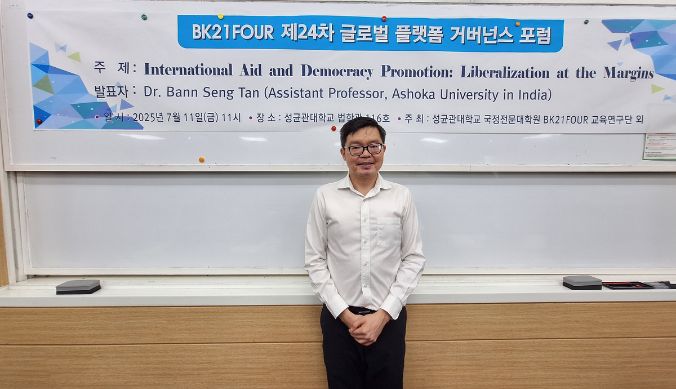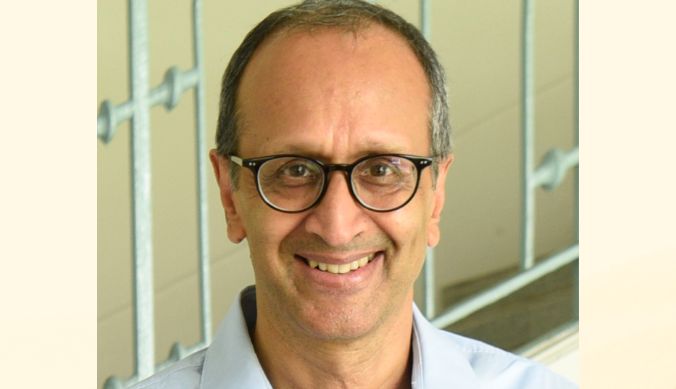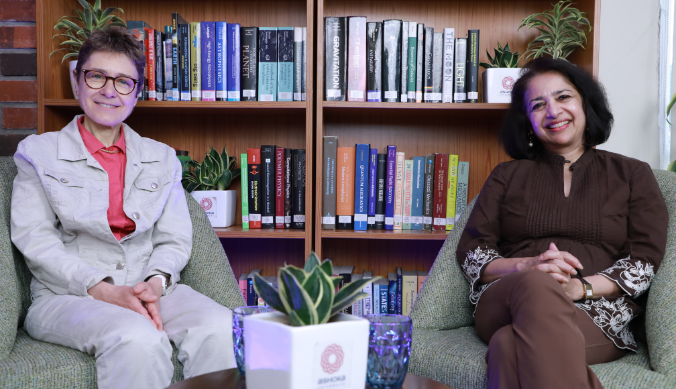Transforming Waste into Opportunity through Sustainable Stationery
On this World Environment Day, we celebrate how collective campus action at Ashoka is transforming waste into opportunity—one recycled notebook at a time.
Pulp is Ashoka University’s in-house Recycled Stationery Brand, executed by the Ashoka University Sustainable Development Goals Club (AU SDG Club) with mentorship from the LiveGreen@Ashoka programme. With a focus on streamlining Ashoka’s waste paper management, Pulp adopts the principles of the circular economy process and ensures Ashoka’s paper waste is converted into fun, aesthetically designed journals and notebooks, which are then available for the Ashoka community for use again, thereby reducing the university’s carbon footprint.
Steered by a model that brings together the student body and the administration, whereby students contribute designs for each batch of notebooks, Pulp hopes to be a role model for how universities can foster campus innovation through multi-stakeholder engagement and adopt circular economy processes through creative value addition, thus contributing to a more sustainable world.
The Process
Ashoka’s paper waste, which includes print-outs, old newspapers, shredded paper and other office waste, is collected and then sent to an accredited recycling partner who converts the paper into beautiful notebooks with student-contributed designs printed as the cover. These notebooks are then available for the Ashoka community at the merchandise store, which, upon use, can again be dropped off in the designated paper collection boxes for recycling. All revenue from the sale of Pulp’s notebooks are ploughed back into the running of the project, thus being a sustainable endeavour not just in its environmental impact but financially as well.

The Pilot
In the first phase, which concluded in April 2024, we collected 273.5 kgs of waste paper over the period of a month through collection boxes placed strategically across the campus and through conducting paper-collection drives. This waste resulted in the creation of 73 notebooks and the planting of 2 trees by the recycling partner on behalf of the university. It was heartwarming to see students and faculty members actively reaching out to enquire about the project and asking how they can dispose of paper, revealing the Ashoka community’s interest and support for adopting sustainable processes on a daily basis. The success of the pilot and the launch of Pulp by the Pro-VC instilled an awareness around campus for disposing paper waste mindfully and as the semester came to a close, we found a record number of students making use of the collection boxes to dispose old notebooks, printed resources and other paper accumulated throughout the semester before they checked out of their hostels, thus showing that collective action can be inculcated through supportive infrastructure which encourages engagement of all stakeholders, be it the administration, students or the housekeeping departments. As a result, by mid-May 2024, an additional 1080 kgs of waste paper was collected, which was then transformed into 346 student-designed notebooks.
The Outcome
Pulp’s pilot run, executed between November 2023 and June 2024, thus demonstrated the feasibility of integrating a circular waste management system which upholds creative value addition through multi-stakeholder engagement. Although the adoption of waste segregation on campus is a topic of discussion across different sustainability and environment-centric student groups on campus, most such discourses seem to find an end when the question of permanent infrastructure is brought up. The AU SDG Club wanted to show that it is worth working towards establishing permanent operational and infrastructural changes through working closely with the administration which was welcoming and supportive of our team throughout. Pulp is thus not just an example of a successful student project, but is in reality the contribution of the whole Ashoka community towards ensuring that a tree, nestled in a beautiful grove somewhere, is prevented from being cut down.

The Team
Pulp and its operational model were conceptualised and led by Aishwarya Sunaad, the founder of the AU SDG Club and co-led by Bhavana Gudnavar with mentorship, supervision and guidance from Dr. Rajni Kaushik, the Director of Sustainability, along with significant contributions from Raunaq Bawa, Omkar Mantri, and Stuti Bhattacharya, all members of the AU SDG Club. We also want to extend our gratitude to all the volunteers who pitched in to help along the way. Importantly, we appreciate every individual from the Ashoka community who thoughtfully disposed of their waste paper in our collection boxes. This would not be possible without them.


Study at Ashoka












